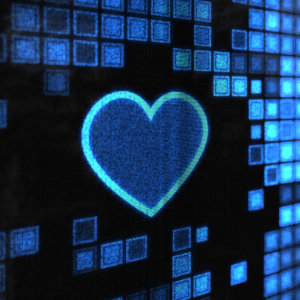But Will the Algorithms Have Empathy?
How soon will it be before smart machines perform complex, multifaceted services such as looking out for our health?
Topics
Frontiers
Every day, we hear about smart machines with new capabilities: computers that can outplay chess masters or are capable of processing natural language to answer increasingly complex questions; new cars that alert us when the driver in front of us hits the brakes, when we drift out of our designated lanes, or when a pedestrian suddenly steps off the curb. But how soon will it be before smart machines perform complex, multifaceted services such as looking out for our health?
In a recent article in The New Yorker, “A.I. Versus M.D.,” Siddhartha Mukherjee, a hematologist and oncologist at Columbia University Medical Center, describes the increasingly nuanced role computers are playing in cancer screening. Twenty years ago, Mukherjee notes, computers were used by diagnosticians to help identify suspicious patterns or waveforms and, later, to confirm a hypothesis. However, he writes, while the rate of biopsies increased, detections didn’t, and there was a jump in false positives.
More recent intelligent systems have used a computing strategy modeled after the brain, known as a “neural network,” which can “learn” how to diagnose illnesses. Mukherjee describes a 2015 study by Sebastian Thrun of Stanford University in which a smart machine was asked to classify 14,000 images that dermatologists had found to have abnormalities (either benign or cancerous). The system correctly diagnosed the problems 72% of the time, compared with 66% for two board-certified dermatologists. Then, in a related study, 21 dermatologists were asked to review a set of about 2,000 images for skin cancers. In all but a few cases, the machine did better at spotting cases of melanoma than the doctors did; what’s more, for reasons that aren’t clear, it learned to differentiate moles from cancers.
Get Updates on Innovative Strategy
The latest insights on strategy and execution in the workplace, delivered to your inbox once a month.
Please enter a valid email address
Thank you for signing up
Applying similar capabilities to detect other illness early and accurately may not be far away. By monitoring a person’s speech patterns with a cellphone, for example, it may be possible to detect early signs of Alzheimer’s disease. Steering wheels with sensors to detect hesitations and tremors might identify potential cases of Parkinson’s disease. Similarly, researchers say, algorithms tracking patients’ heartbeats may identify cardiac issues before they show up in other ways. Patients concerned about skin lesions will be able to send images from their iPhones to robots, which over time will become more and more skilled at diagnosis.


Comment (1)
Kyle Tran